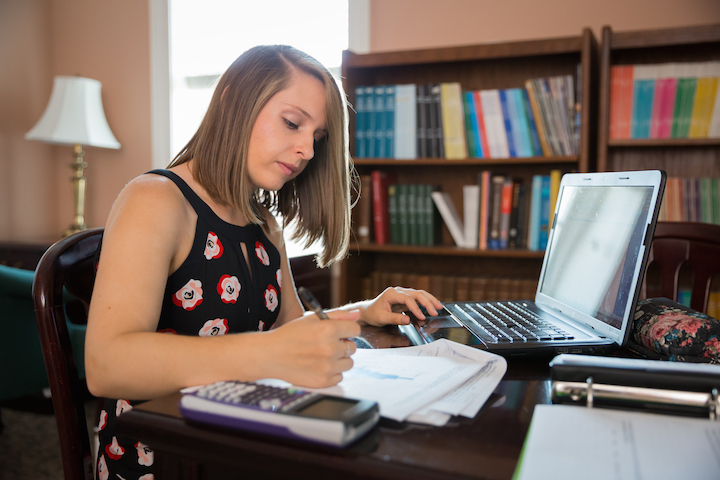

Education is often like a pyramid: layers built upon layers, and the firmer the foundation, the more solid the whole structure.
When one layer is missing pieces, that can cause problems down the line.
Those missing pieces are what Deborah Bray ’16, of Mechanicsville, was after in a summer of intense research in the PRISM program, where she conducted multiple interviews and spent days mining test results for useful data.
Bray and her mentor, Dr. Leah Shilling-Traina, assistant professor of mathematics at Longwood, probed deep into the curriculum of a single popular math course: Introduction to Statistics. That course sets the foundation for much work to come.
"There’s a core curriculum that’s taught," said Bray, "but there are also several concepts that can be taught additionally. Because it’s such a popular course, several professors teach it and they all do it a bit differently. We wanted to know what was being taught first and foremost, and then how that matched up with what the professors in the upper-level courses needed."
Going about getting that information wasn’t simple. Under the tutelage of Shilling-Traina, Bray developed a coding scheme for a massive stack of final exams from the Introduction to Statistics course, reviewed literature and conducted interviews with all of the mathematics professors involved.
"Every day was different," said Bray. "Dr. Shilling-Traina walked me through what needed to be done and then helped as I went through the process. It was definitely an eye-opening experience—doing this type of research is more complex, but also more rewarding, than I expected."
The results were illuminating.
"It was surprising to see just how many professors of the upper-level classes wanted the optional topics taught and felt they were necessary for success," said Bray. "There was a big difference between what they thought was very important and what was being taught in practice."
For Bray, the work isn’t pure research—she sees the potential benefits of the work she did over the summer in her own plans for the future.
"I’ve known I wanted to teach mathematics since my junior year of high school, when I took calculus and fell in love with it," said Bray. "I’m glad that I took the opportunity to do this research while I am here because it will help me as I begin my teaching career after graduation. One of the first things I’m going to do is ask other teachers what they expect my students to have learned by the time I’m finished with them!"
